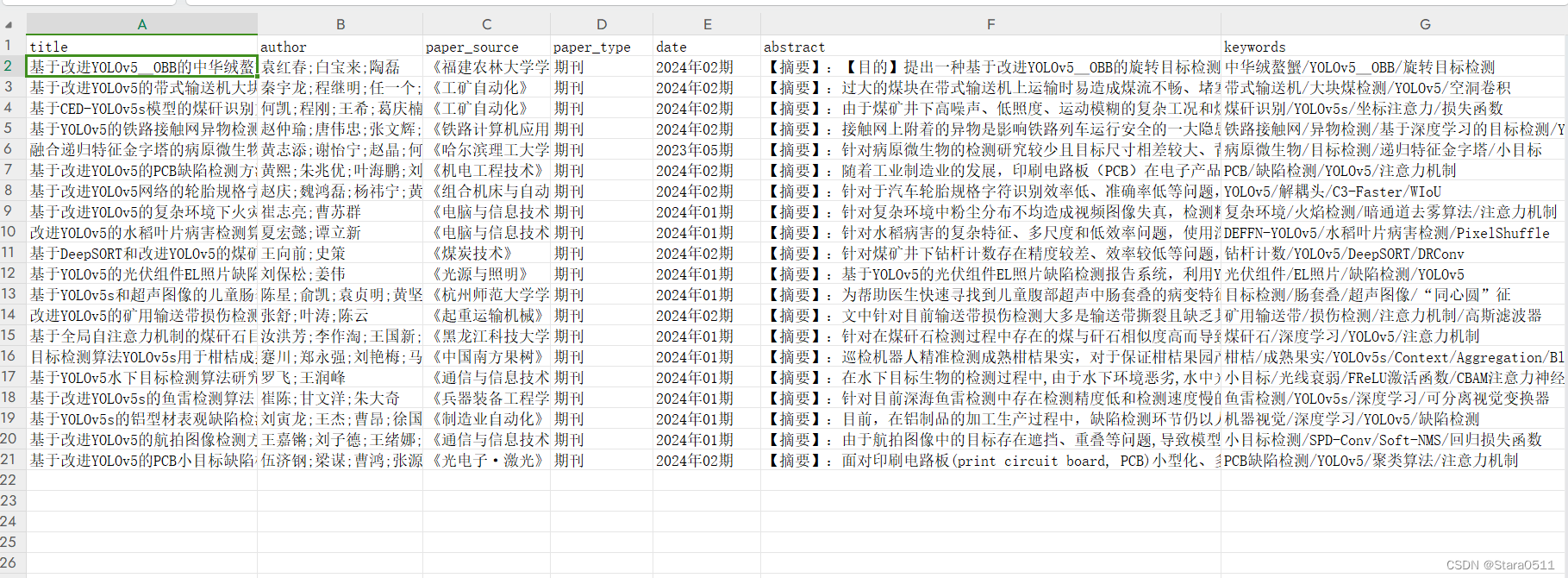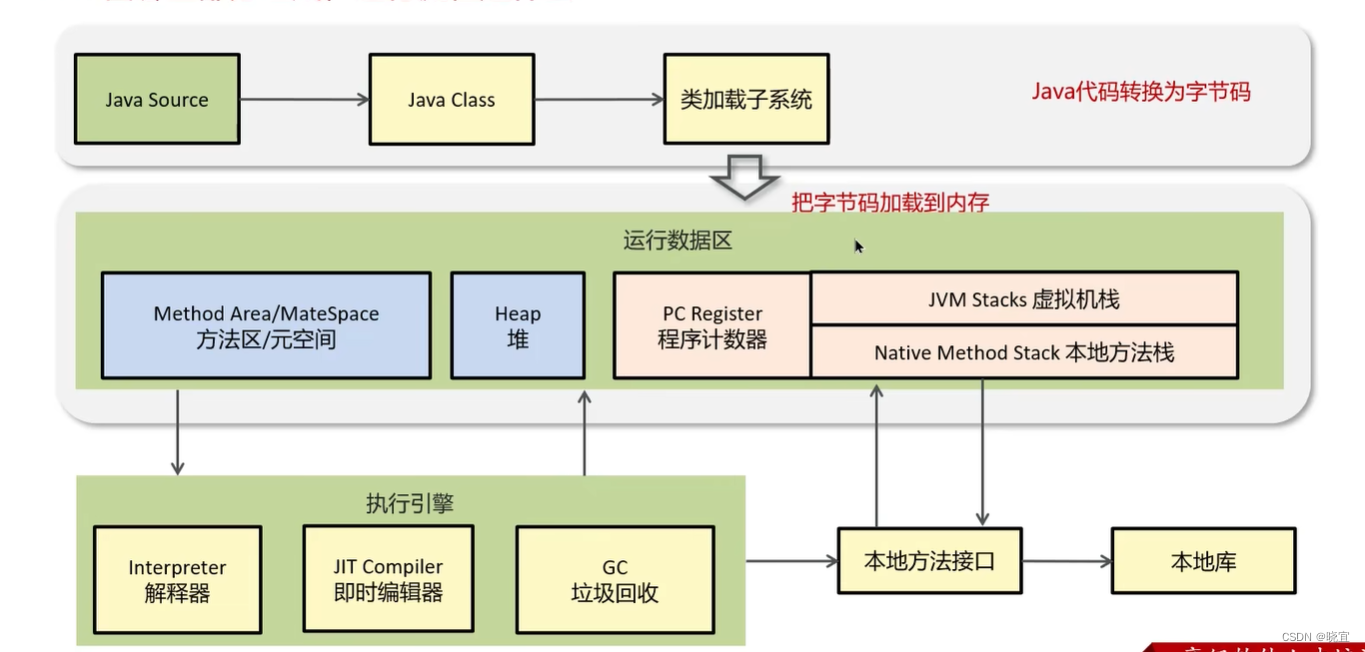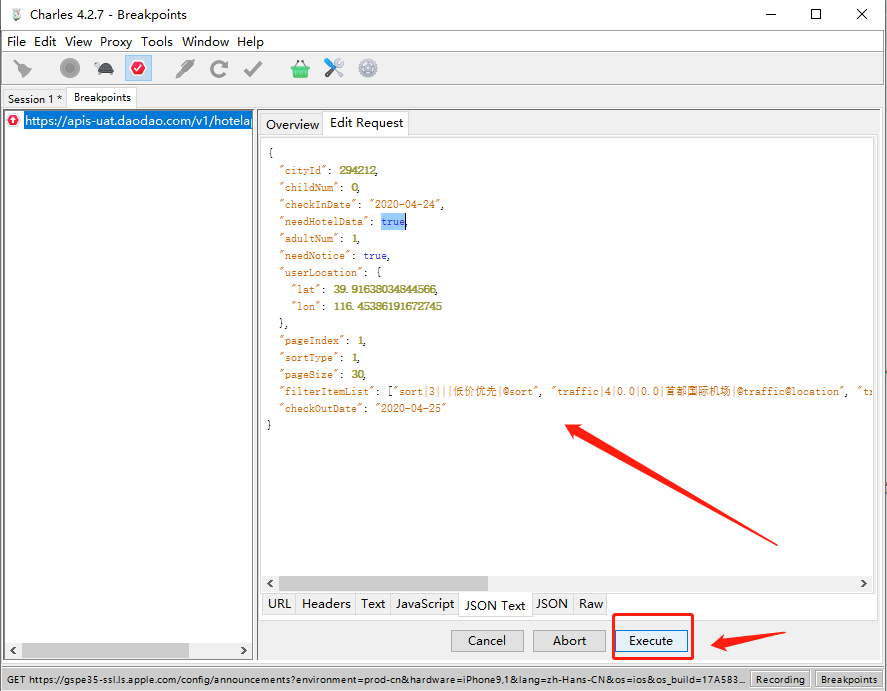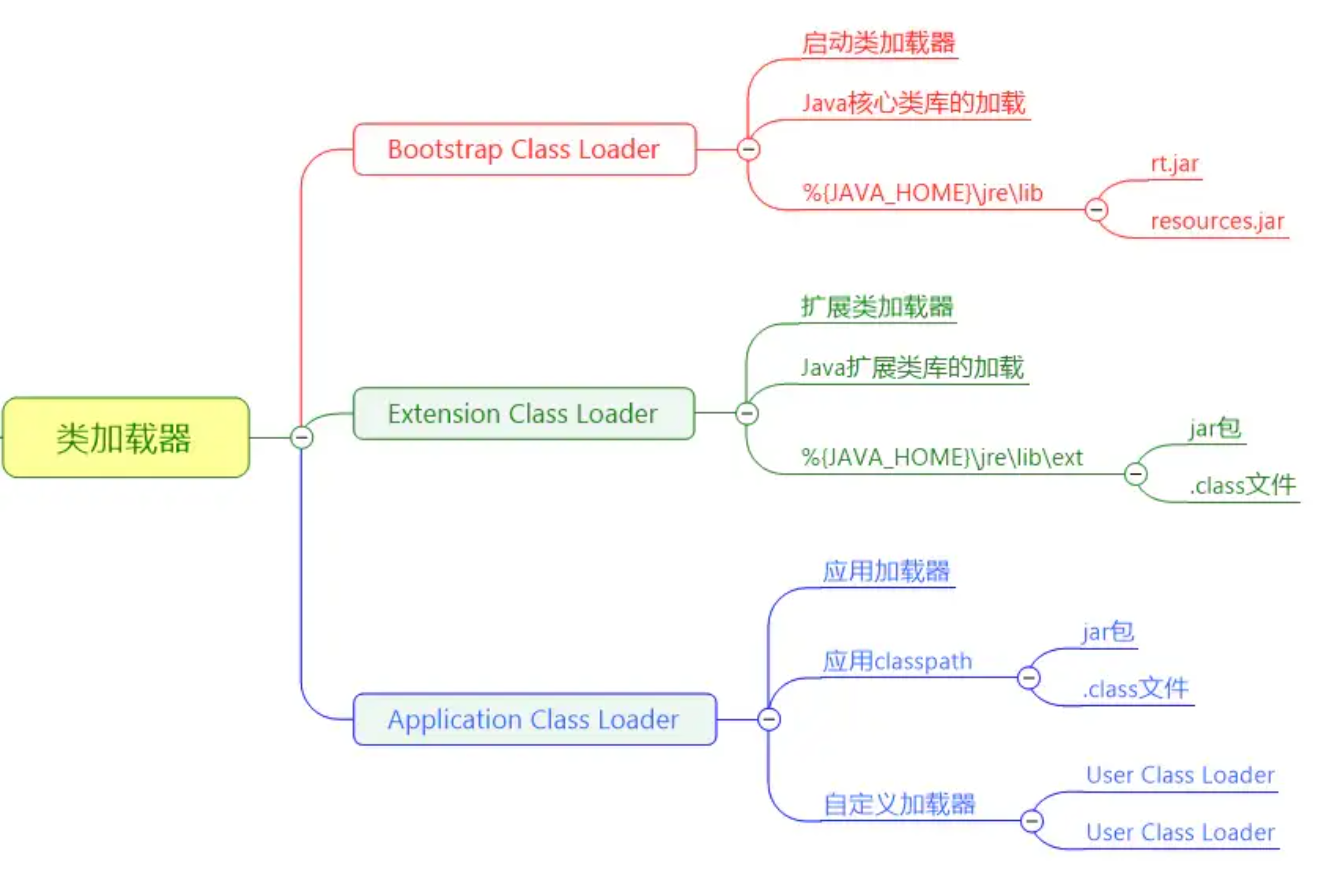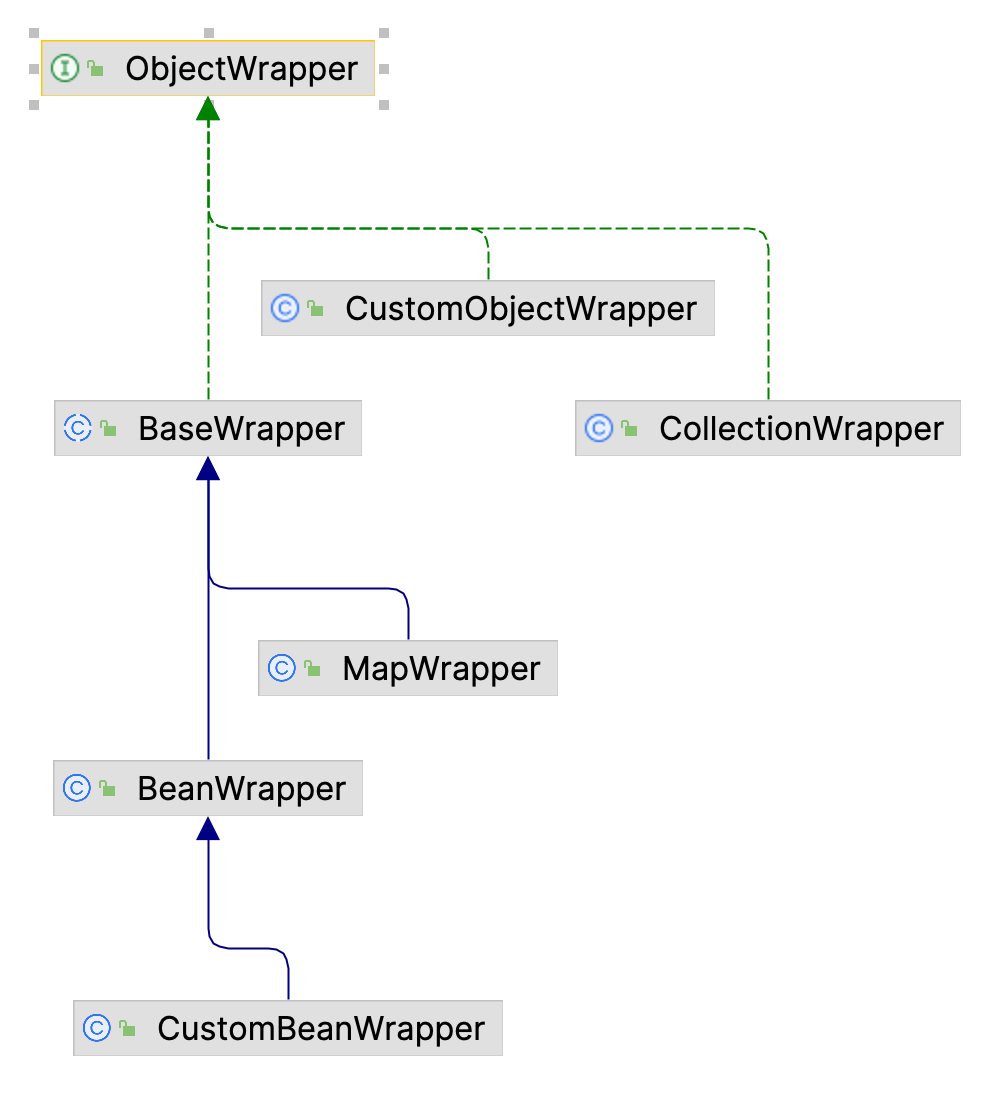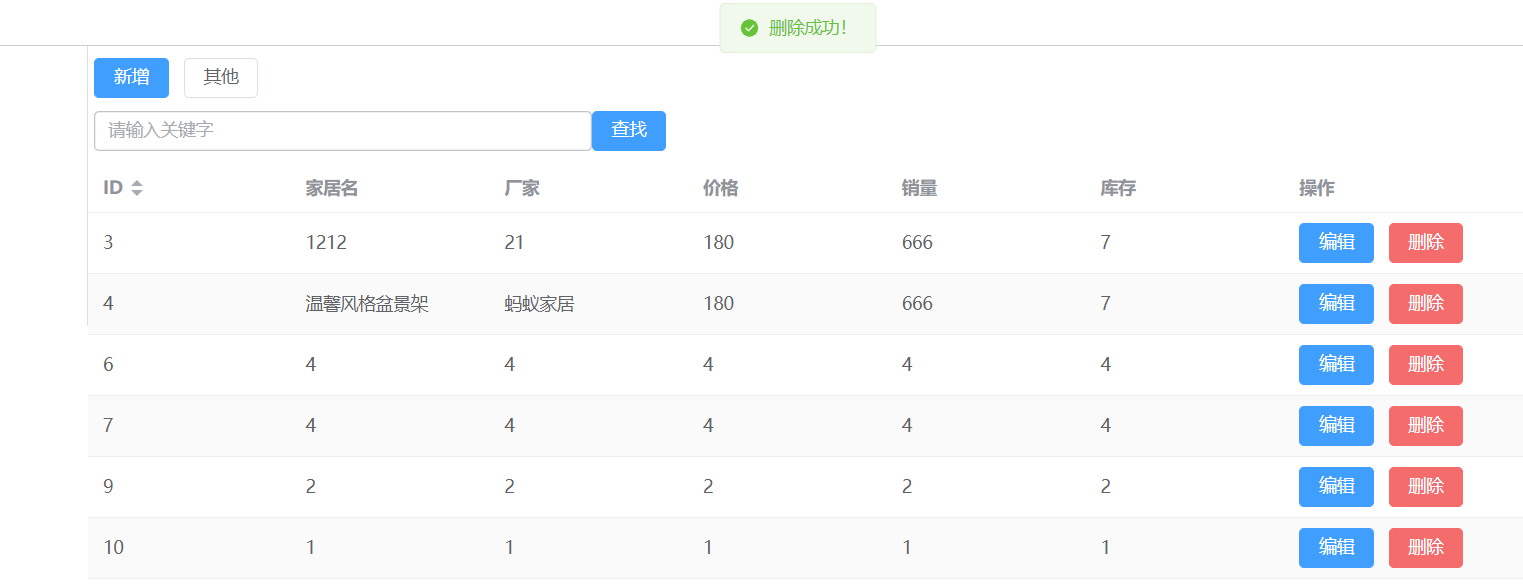文章目录
- 系列文章索引
- 一、网关基本介绍
- 1、网关常用功能
- 2、本次实战目标
- 3、orange介绍
- 4、安装orange
- 二、动手实现网关
- 1、主入口
- (1)nginx的conf配置
- (2)网关lua:gateway.lua
- (3)启动
- 2、gateway网关的插件管理
- (1)实现思路
- (2)基础父类
- (3)工具类
- (4)基础插件类
- (5)实战:签名验证的插件
- (6)设置配置文件
- 3、根据配置文件加载插件
- (1)编写读取配置文件内容的类库
- (2)针对字符串的工具类
- (3)字符串与json对象编码的工具类
- (4)编写配置文件加载类库
- (5)改造入口gateway.lua
- (6)更改nginx.conf
- (7)重启nginx,查看nginx日志
- 4、签名验证插件完善
- (1)handler.lua进行改造
- (2)gateway.lua中access阶段进行改造
- (3)在utils工具类加入对table的操作
- (4)启动nginx,利用之前编写的java代码,模拟请求
- 5、实现黑名单插件
- (1)使用封装的redis库
- (2)创建插件
- (3)完善工具类
- (4)配置文件加入插件
- (4)测试
- 6、实现限流插件
- (1)新建插件
- (2)配置文件加入插件
- (3)测试
- 三、总结
系列文章索引
OpenResty使用Lua大全(一)Lua语法入门实战
OpenResty使用Lua大全(二)在OpenResty中使用Lua
OpenResty使用Lua大全(三)OpenResty使用Json模块解析json
OpenResty使用Lua大全(四)OpenResty中使用Redis
OpenResty使用Lua大全(五)OpenResty中使用MySQL
OpenResty使用Lua大全(六)OpenResty发送http请求
OpenResty使用Lua大全(七)OpenResty使用全局缓存
OpenResty使用Lua大全(八)OpenResty执行流程与阶段详解
OpenResty使用Lua大全(九)实战:nginx-lua-redis实现访问频率控制
OpenResty使用Lua大全(十)实战: Lua + Redis 实现动态封禁 IP
OpenResty使用Lua大全(十一)实战: nginx实现接口签名安全认证
OpenResty使用Lua大全(十二)实战: 动手实现一个网关框架
一、网关基本介绍
1、网关常用功能
统一入口;
安全:黑名单、权限身份认证;
限流:实现微服务访问流量计算,基于流量计算分析进行限流,可以定义多种限流规则;
缓存:数据缓存;
日志:记录日志;
监控:记录请求响应数据,api耗时分析,性能监控;
重试:异常重试;
熔断:降级。
2、本次实战目标
利用openresty+lua实现网关的部分需求;主要搭建好框架,可以在此基础上扩展。
自己了解深入网关
基于openresty开发小型网关框架,主要介绍逻辑,和实现方式;有些生产环境上面去使用,还是需要大家进行改造。

3、orange介绍
官网:http://orange.sumory.com
安装依赖
1)OpenResty: 版本应在1.9.7.3+
需要编译OpenResty时添加--with-http_stub_status_module
2)lor框架
git clone https://github.com/sumory/lor
cd lor
make install
3)MySQL
数据库名:orange
安装mysql数据库
执行相应的版本的数据库脚本
4、安装orange
git clone https://github.com/sumory/orange.git
使用的是v0.5.0及以上的版本, 可以通过make install将Orange安装到系统中。
执行此命令后, 以下两部分将被安装:
/usr/local/orange #orange运行时需要的文件
/usr/local/bin/orange #orange命令行工具
注意: 报错/usr/bin/env: ‘resty’: No such file or directory
在/usr/bin/目录下创建resty的软链接
#sudo ln -s /usr/local/openresty/bin/resty /usr/bin/resty
执行 orange help
Orange v0.6.4, OpenResty/Nginx API Gateway.
Usage: orange COMMAND [OPTIONS]
The commands are:
stop Stop current Orange
version Show the version of Orange
restart Restart Orange
reload Reload the config of Orange
store Init/Update/Backup Orange store
help Show help tips
start Start the Orange Gateway
根据以上两种方式选择使用sh start.sh或orange start来启动Orange。
Orange启动成功后, Dashboard和API server也随之启动:
内置的Dashboard可通过http://localhost:9999访问
API Server默认在7777端口监听,如不需要API Server可删除nginx.conf里对应的配置
二、动手实现网关
1、主入口
(1)nginx的conf配置
#user nobody;
worker_processes 1;
error_log logs/error.log;
error_log logs/debug.log debug;
#pid logs/nginx.pid;
events {
worker_connections 1024;
}
http {
include mime.types;
default_type text/html;
charset utf-8;
sendfile on;
keepalive_timeout 65;
resolver 8.8.8.8;
upstream default_upstream {
server localhost:8080;
}
#----------------------------nginx gateway configuration-----------------------------
# lua文件地址
lua_package_path '/usr/local/lua/?.lua;;';
lua_code_cache on;
lua_shared_dict shared_ip_blacklist 1m; #定义ip_blacklist 本地缓存变量
# 引用我们的 网关lua文件
init_by_lua_block {
local gateway = require("gateway.gateway")
context = {
gateway = gateway
}
}
init_worker_by_lua_block {
local gateway = context.gateway
gateway.init_worker()
}
server {
listen 80;
#server_name www.server1.com;
location = /favicon.ico {
log_not_found off;
access_log off;
}
location / {
set $upstream_host $host;
set $upstream_url 'http://default_upstream';
rewrite_by_lua_block {
local gateway = context.gateway
gateway.redirect()
gateway.rewrite()
}
access_by_lua_block {
local gateway = context.gateway
gateway.access()
}
# proxy
proxy_set_header X-Real-IP $remote_addr;
proxy_set_header X-Forwarded-For $proxy_add_x_forwarded_for;
proxy_set_header X-Forwarded-Scheme $scheme;
proxy_set_header Host $upstream_host;
proxy_pass $upstream_url;
header_filter_by_lua_block {
local gateway = context.gateway
gateway.header_filter()
}
body_filter_by_lua_block {
local gateway = context.gateway
gateway.body_filter()
}
log_by_lua_block {
local gateway = context.gateway
gateway.log()
}
}
}
server {
listen 8080;
location /world {
echo "hello world";
}
}
}
(2)网关lua:gateway.lua
创建/usr/local/lua/gateway/gateway.lua文件
mkdir -p /usr/local/lua/gateway
vi /usr/local/lua/gateway/gateway.lua
local gateway = {}
function gateway.init()
ngx.log(ngx.DEBUG, "===========gateway.init============");
end
function gateway.init_worker()
ngx.log(ngx.DEBUG, "===========gateway.init_worker============");
end
function gateway.redirect()
ngx.log(ngx.DEBUG, "===========gateway.redirect============");
end
function gateway.rewrite()
ngx.log(ngx.DEBUG, "===========gateway.rewrite============");
end
function gateway.access()
ngx.log(ngx.DEBUG, "===========gateway.access============");
end
function gateway.header_filter()
ngx.log(ngx.DEBUG, "===========gateway.header_filter============");
end
function gateway.body_filter()
ngx.log(ngx.DEBUG, "===========gateway.body_filter============");
end
function gateway.log()
ngx.log(ngx.DEBUG, "===========gateway.log============");
end
return gateway;
(3)启动
启动nginx,访问

看debug日志:

这样,我们从nginx的入口,就调用到了我们的lua脚本。
后续我们开发网关的功能,只需要扩展gateway.lua就可以了。
2、gateway网关的插件管理
(1)实现思路
我们需要设计一个方案,可以动态的插拔插件,每个插件代表不同的功能
设计一个方便可插拔的插件,在文档目录结构方面进行这样的设计
–gateway #网关gateway主目录
—lib #存放第三方类库
—common #存放一些工具类库
—conf #存放配置文件
-----gateway.conf #定义gateway网关的一些相关配置
—plugins #存放所有插件的目录
-----base_plugin.lua #插件基类
-----XXXX #某个插件的目录名
-------handler.lua #某个插件的实现类,统一命名为handler,这个是用目录名区分插件,这样的设计有特别用途
mkdir -p /usr/local/lua/gateway/plugins
mkdir -p /usr/local/lua/gateway/lib
mkdir -p /usr/local/lua/gateway/common
mkdir -p /usr/local/lua/gateway/conf
(2)基础父类
存放了公共的类库
classic脚本使用了object的基类,类似java的object类;
以后我们所设计的类,只要在此类上面进行扩展即可,此基类object,大家不需要完全了解,只需要知道此脚本类似于object基类就行。
vi /usr/local/lua/gateway/lib/classic.lua
local Object = {}
Object.__index = Object
function Object:new()
end
function Object:extend()
local cls = {}
for k, v in pairs(self) do
if k:find("__") == 1 then
cls[k] = v
end
end
cls.__index = cls
cls.super = self
setmetatable(cls, self)
return cls
end
function Object:implement(...)
for _, cls in pairs({...}) do
for k, v in pairs(cls) do
if self[k] == nil and type(v) == "function" then
self[k] = v
end
end
end
end
function Object:is(T)
local mt = getmetatable(self)
while mt do
if mt == T then
return true
end
mt = getmetatable(mt)
end
return false
end
function Object:__tostring()
return "Object"
end
function Object:__call(...)
local obj = setmetatable({}, self)
obj:new(...)
return obj
end
return Object
(3)工具类
在common目录下创建的是一些公共方法脚本类
vi /usr/local/lua/gateway/common/utils.lua
local string_find = string.find
local _M = {}
function _M.debug_log(msg)
ngx.log(ngx.DEBUG, msg);
end
function _M.warn_log(msg)
ngx.log(ngx.WARN, msg);
end
function _M.error_log(msg)
ngx.log(ngx.ERR, msg);
end
function _M.load_module_if_exists(module_name)
local status, res = pcall(require, module_name)
if status then
return true, res
-- Here we match any character because if a module has a dash '-' in its name, we would need to escape it.
elseif type(res) == "string" and string_find(res, "module '"..module_name.."' not found", nil, true) then
return false
else
error(res)
end
end
return _M
(4)基础插件类
vi /usr/local/lua/gateway/plugins/base_plugin.lua
local utils = require("gateway.common.utils")
local Object = require("gateway.lib.classic")
local BasePlugin = Object:extend()
function BasePlugin:new(name)
self._name = name
utils.debug_log("BasePlugin executing plugin \""..self._name.."\": new")
end
function BasePlugin:get_name()
return self._name
end
function BasePlugin:init_worker()
utils.debug_log("BasePlugin executing plugin \""..self._name.."\": init_worker")
end
function BasePlugin:redirect()
utils.debug_log("BasePlugin executing plugin \""..self._name.."\": redirect")
end
function BasePlugin:rewrite()
utils.debug_log("BasePlugin executing plugin \""..self._name.."\": rewrite")
end
function BasePlugin:access()
utils.debug_log("BasePlugin executing plugin \""..self._name.."\": access")
end
function BasePlugin:header_filter()
utils.debug_log("BasePlugin executing plugin \""..self._name.."\": header_filter")
end
function BasePlugin:body_filter()
utils.debug_log("BasePlugin executing plugin \""..self._name.."\": body_filter")
end
function BasePlugin:log()
utils.debug_log("BasePlugin executing plugin \""..self._name.."\": log")
end
return BasePlugin
(5)实战:签名验证的插件
在plugins目录下新建sign_auth目录
在sign_auth目录下新建handler.lua
mkdir -p /usr/local/lua/gateway/plugins/sign_auth
vi /usr/local/lua/gateway/plugins/sign_auth/handler.lua
local utils = require("gateway.common.utils")
local BasePlugin = require("gateway.plugins.base_plugin")
local SignAuthHandler = BasePlugin:extend()
SignAuthHandler.PRIORITY = 0
function SignAuthHandler:new()
SignAuthHandler.super.new(self, "sign_auth-plugin")
utils.debug_log("===========SignAuthHandler.new============");
end
function SignAuthHandler:access()
SignAuthHandler.super.access(self)
utils.debug_log("===========SignAuthHandler.access============");
end
return SignAuthHandler;
(6)设置配置文件
到此插件已经设计完成,现在我们需要设计配置文件,有哪些可以配置
vi /usr/local/lua/gateway/conf/gateway.conf
{
"plugins": [ #插件属性,拥有哪些插件
"sign_auth" #此名称就是 插件的目录名
]
}
注意,不能带注释!!!
设计到这里,我们基本雏形已经完成
3、根据配置文件加载插件
(1)编写读取配置文件内容的类库
vi /usr/local/lua/gateway/common/io.lua
---
-- :P some origin code is from https://github.com/Mashape/kong/blob/master/kong/tools/io.lua
-- modified by sumory.wu
local stringy = require("gateway.common.stringy")
local _M = {}
---
-- Checks existence of a file.
-- @param path path/file to check
-- @return `true` if found, `false` + error message otherwise
function _M.file_exists(path)
local f, err = io.open(path, "r")
if f ~= nil then
io.close(f)
return true
else
return false, err
end
end
---
-- Execute an OS command and catch the output.
-- @param command OS command to execute
-- @return string containing command output (both stdout and stderr)
-- @return exitcode
function _M.os_execute(command, preserve_output)
local n = os.tmpname() -- get a temporary file name to store output
local f = os.tmpname() -- get a temporary file name to store script
_M.write_to_file(f, command)
local exit_code = os.execute("/bin/bash "..f.." > "..n.." 2>&1")
local result = _M.read_file(n)
os.remove(n)
os.remove(f)
return preserve_output and result or string.gsub(string.gsub(result, "^"..f..":[%s%w]+:%s*", ""), "[%\r%\n]", ""), exit_code / 256
end
---
-- Check existence of a command.
-- @param cmd command being searched for
-- @return `true` of found, `false` otherwise
function _M.cmd_exists(cmd)
local _, code = _M.os_execute("hash "..cmd)
return code == 0
end
--- Kill a process by PID.
-- Kills the process and waits until it's terminated
-- @param pid_file the file containing the pid to kill
-- @param signal the signal to use
-- @return `os_execute` results, see os_execute.
function _M.kill_process_by_pid_file(pid_file, signal)
if _M.file_exists(pid_file) then
local pid = stringy.strip(_M.read_file(pid_file))
return _M.os_execute("while kill -0 "..pid.." >/dev/null 2>&1; do kill "..(signal and "-"..tostring(signal).." " or "")..pid.."; sleep 0.1; done")
end
end
--- Read file contents.
-- @param path filepath to read
-- @return file contents as string, or `nil` if not succesful
function _M.read_file(path)
local contents
local file = io.open(path, "rb")
if file then
contents = file:read("*all")
file:close()
end
return contents
end
--- Write file contents.
-- @param path filepath to write to
-- @return `true` upon success, or `false` + error message on failure
function _M.write_to_file(path, value)
local file, err = io.open(path, "w")
if err then
return false, err
end
file:write(value)
file:close()
return true
end
--- Get the filesize.
-- @param path path to file to check
-- @return size of file, or `nil` on failure
function _M.file_size(path)
local size
local file = io.open(path, "rb")
if file then
size = file:seek("end")
file:close()
end
return size
end
return _M
(2)针对字符串的工具类
vi /usr/local/lua/gateway/common/stringy.lua
local string_gsub = string.gsub
local string_find = string.find
local table_insert = table.insert
local _M = {}
function _M.trim_all(str)
if not str or str == "" then return "" end
local result = string_gsub(str, " ", "")
return result
end
function _M.strip(str)
if not str or str == "" then return "" end
local result = string_gsub(str, "^ *", "")
result = string_gsub(result, "( *)$", "")
return result
end
function _M.split(str, delimiter)
if not str or str == "" then return {} end
if not delimiter or delimiter == "" then return { str } end
local result = {}
for match in (str .. delimiter):gmatch("(.-)" .. delimiter) do
table_insert(result, match)
end
return result
end
function _M.startswith(str, substr)
if str == nil or substr == nil then
return false
end
if string_find(str, substr) ~= 1 then
return false
else
return true
end
end
function _M.endswith(str, substr)
if str == nil or substr == nil then
return false
end
local str_reverse = string.reverse(str)
local substr_reverse = string.reverse(substr)
if string.find(str_reverse, substr_reverse) ~= 1 then
return false
else
return true
end
end
return _M
(3)字符串与json对象编码的工具类
vi /usr/local/lua/gateway/common/json.lua
local cjson = require("cjson.safe")
local _M = {}
function _M.encode(data, empty_table_as_object)
if not data then return nil end
if cjson.encode_empty_table_as_object then
-- empty table default is arrya
cjson.encode_empty_table_as_object(empty_table_as_object or false)
end
if require("ffi").os ~= "Windows" then
cjson.encode_sparse_array(true)
end
return cjson.encode(data)
end
function _M.decode(data)
if not data then return nil end
return cjson.decode(data)
end
return _M
(4)编写配置文件加载类库
vi /usr/local/lua/gateway/common/config_loader.lua
local json = require("gateway.common.json")
local IO = require("gateway.common.io")
local _M = {}
function _M.load(config_path)
config_path = config_path or "/usr/local/lua/gateway/conf/gateway.conf"
local config_contents = IO.read_file(config_path)
if not config_contents then
ngx.log(ngx.ERR, "No configuration file at: ", config_path)
os.exit(1)
end
local config = json.decode(config_contents)
return config, config_path
end
return _M
(5)改造入口gateway.lua
vi /usr/local/lua/gateway/gateway.lua
local utils = require("gateway.common.utils")
local config_loader = require("gateway.common.config_loader")
local function load_node_plugins(config)
utils.debug_log("===========load_node_plugins============");
local plugins = config.plugins --插件列表
local sorted_plugins = {} --按照优先级的插件集合
for _, v in ipairs(plugins) do
local loaded, plugin_handler = utils.load_module_if_exists("gateway.plugins." .. v .. ".handler")
if not loaded then
utils.warn_log("The following plugin is not installed or has no handler: " .. v)
else
utils.debug_log("Loading plugin: " .. v)
table.insert(sorted_plugins, {
name = v,
handler = plugin_handler(), --插件
})
end
end
--表按照优先级排序
table.sort(sorted_plugins, function(a, b)
local priority_a = a.handler.PRIORITY or 0
local priority_b = b.handler.PRIORITY or 0
return priority_a > priority_b
end)
return sorted_plugins
end
local gateway= {}
function gateway.init(options)
options = options or {}
local config
local status, err = pcall(function()
--gateway的配置文件路径
local conf_file_path = options.config
utils.debug_log("Loading gateway conf : " .. conf_file_path)
config = config_loader.load(conf_file_path)
--加载配置的插件
loaded_plugins = load_node_plugins(config)
end)
if not status or err then
utils.error_log("Startup error: " .. err)
return ngx.exit(ngx.HTTP_INTERNAL_SERVER_ERROR)
end
ngx.log(ngx.DEBUG, "===========gateway.init============");
end
function gateway.init_worker()
ngx.log(ngx.DEBUG, "===========gateway.init_worker============");
end
function gateway.redirect()
ngx.log(ngx.DEBUG, "===========gateway.redirect============");
end
function gateway.rewrite()
ngx.log(ngx.DEBUG, "===========gateway.rewrite============");
end
function gateway.access()
ngx.log(ngx.DEBUG, "===========gateway.access============");
end
function gateway.header_filter()
ngx.log(ngx.DEBUG, "===========gateway.header_filter============");
end
function gateway.body_filter()
ngx.log(ngx.DEBUG, "===========gateway.body_filter============");
end
function gateway.log()
ngx.log(ngx.DEBUG, "===========gateway.log============");
end
return gateway;
(6)更改nginx.conf
init_by_lua_block {
local gateway = require("gateway.gateway")
local config_file = "/usr/local/lua/gateway/conf/gateway.conf"
gateway.init({
config = config_file
})
context = {
gateway = gateway
}
}
(7)重启nginx,查看nginx日志
nginx -s reload
访问一下:


4、签名验证插件完善
(1)handler.lua进行改造
vi /usr/local/lua/gateway/plugins/sign_auth/handler.lua
local utils = require("gateway.common.utils")
local BasePlugin = require("gateway.plugins.base_plugin")
local redis = require "resty.redis" --引入redis模块
local function close_redis(red)
if not red then
return
end
--释放连接(连接池实现)
local pool_max_idle_time = 10000 --毫秒
local pool_size = 100 --连接池大小
local ok, err = red:set_keepalive(pool_max_idle_time, pool_size)
if not ok then
utils.error_log("set keepalive error : "..err)
end
end
--检验请求的sign签名是否正确
--params:传入的参数值组成的table
--secret:项目secret,根据appid找到secret
local function signcheck(params,secret)
--判断参数是否为空,为空报异常
if utils.isTableEmpty(params) then
local mess="params table is empty"
utils.error_log(mess)
return false,mess
end
--判断是否有签名参数
local sign = params["sign"]
if sign == nil then
local mess="params sign is nil"
utils.error_log(mess)
return false,mess
end
--是否存在时间戳的参数
local timestamp = params["time"]
if timestamp == nil then
local mess="params timestamp is nil"
utils.error_log(mess)
return false,mess
end
--时间戳有没有过期,10秒过期
local now_mill = ngx.now() * 1000 --毫秒级
if now_mill - timestamp > 10000 then
local mess="params timestamp is 过期"
utils.error_log(mess)
return false,mess
end
local keys, tmp = {}, {}
--提出所有的键名并按字符顺序排序
for k, _ in pairs(params) do
if k ~= "sign" then --去除掉
keys[#keys+1]= k
end
end
table.sort(keys)
--根据排序好的键名依次读取值并拼接字符串成key=value&key=value
for _, k in pairs(keys) do
if type(params[k]) == "string" or type(params[k]) == "number" then
tmp[#tmp+1] = k .. "=" .. tostring(params[k])
end
end
--将salt添加到最后,计算正确的签名sign值并与传入的sign签名对比,
local signchar = table.concat(tmp, "&") .."&"..secret
local rightsign = ngx.md5(signchar);
if sign ~= rightsign then
--如果签名错误返回错误信息并记录日志,
local mess="sign error: sign,"..sign .. " right sign:" ..rightsign.. " sign_char:" .. signchar
utils.error_log(mess)
return false,mess
end
return true
end
local SignAuthHandler = BasePlugin:extend()
SignAuthHandler.PRIORITY = 0
function SignAuthHandler:new()
SignAuthHandler.super.new(self, "sign_auth-plugin")
utils.debug_log("===========SignAuthHandler.new============");
end
function SignAuthHandler:access()
SignAuthHandler.super.access(self)
utils.debug_log("===========SignAuthHandler.access============");
local params = {}
local get_args = ngx.req.get_uri_args();
local appid = get_args["appid"];
if appid == nil then
ngx.say("appid is empty,非法请求");
return ngx.exit(ngx.HTTP_FORBIDDEN) --直接返回403
end
ngx.req.read_body()
local post_args = ngx.req.get_post_args();
utils.union(params,get_args)
params = utils.union(params,post_args)
local red = redis:new() --创建一个对象,注意是用冒号调用的
--设置超时(毫秒)
red:set_timeout(1000)
--建立连接
local host = "127.0.0.1"
local port = 6379
local ok, err = red:connect(host, port)
if not ok then
close_redis(red)
utils.error_log("Cannot connect");
return ngx.exit(ngx.HTTP_INTERNAL_SERVER_ERROR)
end
--得到此appid对应的secret
local resp, err = red:hget("apphash",appid)
if not resp or (resp == ngx.null) then
close_redis(red)
return ngx.exit(ngx.HTTP_INTERNAL_SERVER_ERROR) --redis 获取值失败
end
--resp存放着就是appid对应的secret
local checkResult,mess = signcheck(params,resp)
if not checkResult then
ngx.say(mess);
return ngx.exit(ngx.HTTP_FORBIDDEN) --直接返回403
end
end
return SignAuthHandler;
(2)gateway.lua中access阶段进行改造
vi /usr/local/lua/gateway/gateway.lua
function gateway.access()
ngx.log(ngx.DEBUG, "===========gateway.access============");
for _, plugin in ipairs(loaded_plugins) do
ngx.log(ngx.DEBUG, "==gateway.access name==" .. plugin.name);
plugin.handler:access()
end
end
(3)在utils工具类加入对table的操作
vi /usr/local/lua/gateway/common/utils.lua
--判断table是否为空
function _M.isTableEmpty(t)
return t == nil or next(t) == nil
end
--两个table合并
function _M.union(table1,table2)
for k, v in pairs(table2) do
table1[k] = v
end
return table1
end
(4)启动nginx,利用之前编写的java代码,模拟请求
5、实现黑名单插件
(1)使用封装的redis库
vi /usr/local/lua/gateway/lib/redis.lua
local redis_c = require "resty.redis"
local ok, new_tab = pcall(require, "table.new")
if not ok or type(new_tab) ~= "function" then
new_tab = function (narr, nrec) return {} end
end
local _M = new_tab(0, 155)
_M._VERSION = '0.01'
local commands = {
"append", "auth", "bgrewriteaof",
"bgsave", "bitcount", "bitop",
"blpop", "brpop",
"brpoplpush", "client", "config",
"dbsize",
"debug", "decr", "decrby",
"del", "discard", "dump",
"echo",
"eval", "exec", "exists",
"expire", "expireat", "flushall",
"flushdb", "get", "getbit",
"getrange", "getset", "hdel",
"hexists", "hget", "hgetall",
"hincrby", "hincrbyfloat", "hkeys",
"hlen",
"hmget", "hmset", "hscan",
"hset",
"hsetnx", "hvals", "incr",
"incrby", "incrbyfloat", "info",
"keys",
"lastsave", "lindex", "linsert",
"llen", "lpop", "lpush",
"lpushx", "lrange", "lrem",
"lset", "ltrim", "mget",
"migrate",
"monitor", "move", "mset",
"msetnx", "multi", "object",
"persist", "pexpire", "pexpireat",
"ping", "psetex", "psubscribe",
"pttl",
"publish", --[[ "punsubscribe", ]] "pubsub",
"quit",
"randomkey", "rename", "renamenx",
"restore",
"rpop", "rpoplpush", "rpush",
"rpushx", "sadd", "save",
"scan", "scard", "script",
"sdiff", "sdiffstore",
"select", "set", "setbit",
"setex", "setnx", "setrange",
"shutdown", "sinter", "sinterstore",
"sismember", "slaveof", "slowlog",
"smembers", "smove", "sort",
"spop", "srandmember", "srem",
"sscan",
"strlen", --[[ "subscribe", ]] "sunion",
"sunionstore", "sync", "time",
"ttl",
"type", --[[ "unsubscribe", ]] "unwatch",
"watch", "zadd", "zcard",
"zcount", "zincrby", "zinterstore",
"zrange", "zrangebyscore", "zrank",
"zrem", "zremrangebyrank", "zremrangebyscore",
"zrevrange", "zrevrangebyscore", "zrevrank",
"zscan",
"zscore", "zunionstore", "evalsha"
}
local mt = { __index = _M }
local function is_redis_null( res )
if type(res) == "table" then
for k,v in pairs(res) do
if v ~= ngx.null then
return false
end
end
return true
elseif res == ngx.null then
return true
elseif res == nil then
return true
end
return false
end
function _M.close_redis(self, redis)
if not redis then
return
end
--释放连接(连接池实现)
local pool_max_idle_time = self.pool_max_idle_time --最大空闲时间 毫秒
local pool_size = self.pool_size --连接池大小
local ok, err = redis:set_keepalive(pool_max_idle_time, pool_size)
if not ok then
ngx.say("set keepalive error : ", err)
end
end
-- change connect address as you need
function _M.connect_mod( self, redis )
redis:set_timeout(self.timeout)
local ok, err = redis:connect(self.ip, self.port)
if not ok then
ngx.say("connect to redis error : ", err)
return self:close_redis(redis)
end
if self.password ~= "" then ----密码认证
local count, err = redis:get_reused_times()
if 0 == count then ----新建连接,需要认证密码
ok, err = redis:auth(self.password)
if not ok then
ngx.say("failed to auth: ", err)
return
end
elseif err then ----从连接池中获取连接,无需再次认证密码
ngx.say("failed to get reused times: ", err)
return
end
end
return ok,err;
end
function _M.init_pipeline( self )
self._reqs = {}
end
function _M.commit_pipeline( self )
local reqs = self._reqs
if nil == reqs or 0 == #reqs then
return {}, "no pipeline"
else
self._reqs = nil
end
local redis, err = redis_c:new()
if not redis then
return nil, err
end
local ok, err = self:connect_mod(redis)
if not ok then
return {}, err
end
redis:init_pipeline()
for _, vals in ipairs(reqs) do
local fun = redis[vals[1]]
table.remove(vals , 1)
fun(redis, unpack(vals))
end
local results, err = redis:commit_pipeline()
if not results or err then
return {}, err
end
if is_redis_null(results) then
results = {}
ngx.log(ngx.WARN, "is null")
end
-- table.remove (results , 1)
--self.set_keepalive_mod(redis)
self:close_redis(redis)
for i,value in ipairs(results) do
if is_redis_null(value) then
results[i] = nil
end
end
return results, err
end
local function do_command(self, cmd, ... )
if self._reqs then
table.insert(self._reqs, {cmd, ...})
return
end
local redis, err = redis_c:new()
if not redis then
return nil, err
end
local ok, err = self:connect_mod(redis)
if not ok or err then
return nil, err
end
redis:select(self.db_index)
local fun = redis[cmd]
local result, err = fun(redis, ...)
if not result or err then
-- ngx.log(ngx.ERR, "pipeline result:", result, " err:", err)
return nil, err
end
if is_redis_null(result) then
result = nil
end
--self.set_keepalive_mod(redis)
self:close_redis(redis)
return result, err
end
for i = 1, #commands do
local cmd = commands[i]
_M[cmd] =
function (self, ...)
return do_command(self, cmd, ...)
end
end
function _M.new(self, opts)
opts = opts or {}
local timeout = (opts.timeout and opts.timeout * 1000) or 1000
local db_index= opts.db_index or 0
local ip = opts.ip or '127.0.0.1'
local port = opts.port or 6379
local password = opts.password or ""
local pool_max_idle_time = opts.pool_max_idle_time or 60000
local pool_size = opts.pool_size or 100
return setmetatable({
timeout = timeout,
db_index = db_index,
ip = ip,
port = port,
password = password,
pool_max_idle_time = pool_max_idle_time,
pool_size = pool_size,
_reqs = nil }, mt)
end
return _M
(2)创建插件
mkdir -p /usr/local/lua/gateway/plugins/limit_ip
vi /usr/local/lua/gateway/plugins/limit_ip/handler.lua
local utils = require("gateway.common.utils")
local redis = require("gateway.lib.redis") --引入redis模块
local BasePlugin = require("gateway.plugins.base_plugin")
local opts = {
ip = "127.0.0.1",
port = "6379",
-- password = "123456",
nil,
db_index = 0
}
local LimitIpHandler = BasePlugin:extend()
LimitIpHandler.PRIORITY = 2
function LimitIpHandler:new()
LimitIpHandler.super.new(self, "limit_ip-plugin")
utils.debug_log("===========LimitIpHandler.new============");
end
function LimitIpHandler:access()
LimitIpHandler.super.access(self)
utils.debug_log("===========LimitIpHandler.access============");
local key = "limit:ip:blacklist";
local user_ip = utils.get_ip();
local shared_ip_blacklist = ngx.shared.shared_ip_blacklist;
--获得本地缓存的最新刷新时间
local last_update_time = shared_ip_blacklist:get("last_update_time");
if last_update_time ~= nil then
local dif_time = ngx.now() - last_update_time
if dif_time < 60 then --缓存1分钟,没有过期
if shared_ip_blacklist:get(user_ip) then
return ngx.exit(ngx.HTTP_FORBIDDEN) --直接返回403
end
end
end
local red = redis:new(opts) --创建一个对象,注意是用冒号调用的
local ip_blacklist, err = red:smembers(key);
if err then
utils.error_log("limit ip smembers");
else
--刷新本地缓存,重新设置
shared_ip_blacklist:flush_all();
if ip_blacklist ~= nil then
for i,bip in ipairs(ip_blacklist) do
--本地缓存redis中的黑名单
shared_ip_blacklist:set(bip,true);
end
end
--设置本地缓存的最新更新时间
shared_ip_blacklist:set("last_update_time",ngx.now());
end
if shared_ip_blacklist:get(ip) then
return ngx.exit(ngx.HTTP_FORBIDDEN) --直接返回403
end
end
return LimitIpHandler;
(3)完善工具类
vi /usr/local/lua/gateway/common/utils.lua
function _M.get_ip()
local myIP = ngx.req.get_headers()["X-Real-IP"]
if myIP == nil then
myIP = ngx.req.get_headers()["x_forwarded_for"]
end
if myIP == nil then
myIP = ngx.var.remote_addr
end
return myIP;
end
(4)配置文件加入插件
vi /usr/local/lua/gateway/conf/gateway.conf
{
"plugins": [
"limit_ip"
]
}
(4)测试
访问:

加入黑名单:
sadd limit:ip:blacklist 192.168.56.1
过一段时间,生效,发现被限制了:

6、实现限流插件
(1)新建插件
mkdir -p /usr/local/lua/gateway/plugins/limit_frequency
vi /usr/local/lua/gateway/plugins/limit_frequency/handler.lua
local utils = require("gateway.common.utils")
local redis = require("gateway.lib.redis") --引入redis模块
local BasePlugin = require("gateway.plugins.base_plugin")
local opts = {
ip = "127.0.0.1",
port = "6379",
db_index = 0
}
local LimitFrequencyHandler = BasePlugin:extend()
LimitFrequencyHandler.PRIORITY = 1
function LimitFrequencyHandler:new()
LimitFrequencyHandler.super.new(self, "LimitFrequency-plugin")
utils.debug_log("===========LimitFrequencyHandler.new============");
end
function LimitFrequencyHandler:access()
LimitFrequencyHandler.super.access(self)
utils.debug_log("===========LimitFrequencyHandler.access============");
local user_ip = utils.get_ip();
local key = "limit:frequency:"..user_ip;
local red = redis:new(opts) --创建一个对象,注意是用冒号调用的
--得到此客户端IP的频次
local resp, err = red:get(key)
if err then
return ngx.exit(ngx.HTTP_INTERNAL_SERVER_ERROR) --redis 获取值失败
end
if resp == nil then
utils.debug_log("===========key set ============");
local result,err = red:set(key, 1) -- 单位时间 第一次访问
utils.debug_log("===========key expire ============");
result,err = red:expire(key, 10) --10秒时间 过期
end
if type(resp) == "string" then
if tonumber(resp) > 10 then -- 超过10次
return ngx.exit(ngx.HTTP_FORBIDDEN) --直接返回403
end
end
--调用API设置key
local ok, err = red:incr(key)
if err then
return ngx.exit(ngx.HTTP_INTERNAL_SERVER_ERROR) --redis 报错
end
end
return LimitFrequencyHandler;
(2)配置文件加入插件
vi /usr/local/lua/gateway/conf/gateway.conf
{
"plugins": [
"limit_ip",
"limit_frequency"
]
}
(3)测试
重启nginx:
10秒内访问超过10次,就会出现403 Forbidden。
三、总结
其实没必要自己手动实现一个网关,因为现有的开源网关功能很强大也很好用,比如kong,orange开源网关框架。




